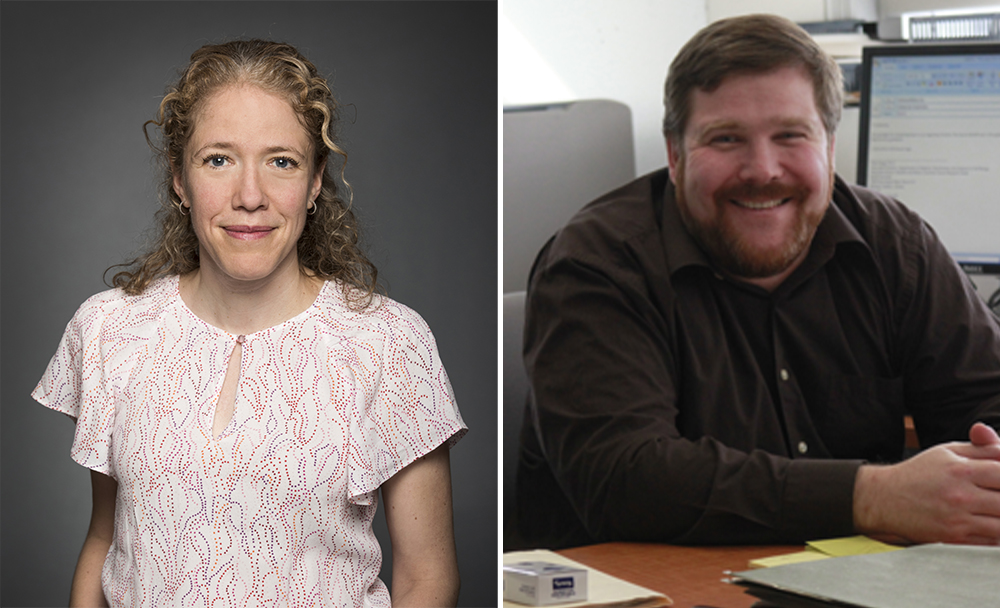VANCOUVER - Two outstanding Canadian research teams will receive $12 million over the next six years to continue searching for new therapeutic targets for hard-to-treat cancers after being awarded the 2019 Terry Fox New Frontiers Program Project Grant (PPG).
The teams, which are based in Toronto and Montreal/Ottawa, will use the funding to dive deep into the unique biology of cancer cells with the hopes of finding specific vulnerabilities that could be exploited through exciting combination therapies.
“These teams have demonstrated that they are able to think outside the box and create really innovative projects that tackle some of the most challenging problems in cancer research,” says Dr. Victor Ling, president and scientific director at the Terry Fox Research Institute. “They bring together leading researchers with complementary skills to investigate different aspects of a given area of cancer research to find solutions that could yield positive results for patients in the short term.”
The projects were selected after a rigorous process that saw a committee of international experts visit four short-listed labs before making a final decision on the award recipients.
Familiar faces, innovative approaches
Both research teams have a proven track-record in cancer research and have received funding from the TFRI before. With this new grant, they hope to continue building on previous discoveries and begin transitioning their ground-breaking research out of the lab and into clinics.
The Toronto-based team will be co-led by Drs. Marianne Koritzinsky and Michael Milosevic at the Princess Margaret Cancer Centre and will focus its research on exploring different elements within the tumour microenvironment that drive aggressive cancers and treatment resistance. Their main target will be hypoxia, a phenomenon in which low-oxygen levels within a tumour make tumours more aggressive. They will be looking at pancreatic cancer, glioblastoma multiforme, castrate-resistant prostate cancer and cervical cancer.
“During previous iterations of the project we learned that the tumour microenvironment is a unique ecosystem made up of different cells, and that its composition (including oxygen levels) can drive the aggressiveness of a cancer and determine if a patient becomes resistant to therapy,” explained Dr. Koritzinsky. “This new funding will allow us to continue doing basic science research to learn more about the tumour microenvironment while also setting up two clinical trials that use combination therapies to target specific vulnerabilities in patients with castrate-resistant prostate cancer and cervical cancer.”
The second research team will be led by Drs. Julie St-Pierre (University of Ottawa) and Peter Siegel (McGill University) and will focus on cancer metabolism, the process through which cancer cells gain the energy and nutrients they use to spread throughout the body. They will mainly be looking at finding ways to disrupt metabolism in breast cancer but hope their findings can apply to other cancer types.
“Over the last few years, funding from the TFRI has been instrumental in allowing us to identify a number of key metabolic pathways that cancer cells use to get energy and learn how these pathways change as cancers spread and become resistant to treatment,” says Dr. St-Pierre. “Now that we have a decent understanding of how certain cancer cells ‘eat’, we can try to find new ways to interrupt these metabolic processes and, essentially, starve the tumours to death.”
Learn more about the research of the 2019 Terry Fox New Frontiers Program Project Grant winners, here:
The Terry Fox New Frontier Program Project Grant in Targeting Metabolic Vulnerabilities in Cancer; Project leaders: Drs. Julie St-Pierre (University of Ottawa) and Peter Siegel (McGill University); Award: $6M; Project Duration: 2019-2025.
The Terry Fox New Frontiers Program Project Grant in Triggers and Targets in the Tumour Microenvironment; Project leaders: Drs. Marianne Koritzinsky (Princess Margaret Cancer Centre) and Michael Milosevic (Princess Margaret Cancer Centre); Award: $6M; Project Duration: 2019-2025

Drs. Julie St. Pierre (University of Ottawa) and Peter Siegel (McGill) will lead The Terry Fox New Frontiers Program Project Grant in Targeting Metabolic Vulnerabilities in Cancer

Drs. Michael Milosevic and Marianne Koritzinsky (Princess Margaret Cancer Centres) will lead the The Terry Fox New Frontiers Program Project Grant in Triggers and Targets in the Tumour Microenvironment;